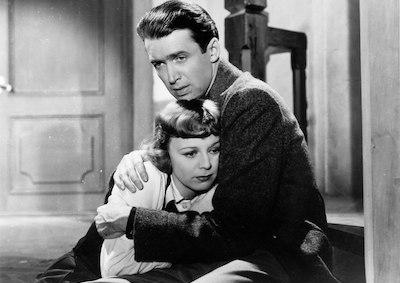"The beloved UCLA Festival of Preservation... is filled, as always, with a deeply satisfying cornucopia of films, forgotten gems and rarely revived classics that never fail to both astonish in their diversity and dazzle in their newly restored glory."—Kenneth Turan, Los Angeles Times
This year for the first time, we decided to organize our UCLA Festival of Preservation as a long weekend event, instead of one spread out over a whole month, as in previous iterations. We believe this will give the biennial event more of a festival character, but of course this is a grand experiment. We welcome your feedback on the new format. Our festival is still representative of the broad and deep efforts of UCLA Film & Television Archive to preserve and restore our moving image heritage. We have tried to put together a mix of mainstream classic Hollywood, independent features, documentaries, and television work, reflecting the Archive’s many stellar collections of film and video material.
We begin the festival Friday morning with a delightful 1930s musical comedy, My Lips Betray (dir. John G. Blystone, 1933), starring Germany’s most popular actress, Lilian Harvey, who was one of the few non-Jewish German actors to turn her back on the Third Reich. Another comedy highlight will be our Laurel and Hardy program, featuring Perfect Day (1929), which was restored thanks to an incredibly successful UCLA Spark crowdfunding campaign. Frank Borzage’s The Mortal Storm (1940) was one of the few Hollywood anti-Nazi melodramas made before America’s entrance into World War II. Another fascinating but largely forgotten anti-Nazi film, Voice in the Wind (dir. Arthur Ripley, 1944), is about a Czech refugee concert pianist.
We are proud to screen new restorations of a number of restored film noirs: The Red House (dir. Delmer Daves, 1947) is a psychological noir thriller, starring Edward G. Robinson, who has a terrible secret to hide from his daughter. The Crooked Way (dir. Robert Florey, 1949) is about a wounded war veteran who lost his memory and must somehow piece together his previous life. Like a lot of film noirs shot on location in the late 1940s, Trapped (dir. Richard Fleischer, 1949) has a semi-documentary feel in its narrative of the work of the U.S. Treasury Department as they try to run down a ring of counterfeiters.
We are also presenting restorations of a number of independent films: The Killing Floor (dir. Bill Duke, 1986) retells the story of the infamous 1919 Chicago race riots. Operation Bootstrap (dir. Charles Carey, 1968) is a film produced by an organization of the same name that helped African Americans receive work training. Continuing our efforts to preserve films in the Outfest UCLA Legacy Project, now the largest LGBTQ film collection in the world, we have preserved Gay USA (1978), a documentary film by Arthur J. Bressan, Jr. that discusses the victories and challenges of the gay liberation movement.
Finally, we present a selection of newsreels, television programs, animation and the silent feature film, Smouldering Fires (dir. Clarence Brown, 19245), restored from a 16mm Universal “Show-at-Home” print by former UCLA Preservation Officer Robert Gitt for our partner, The Packard Humanities Institute.
All of our restoration work is dependent on the support of our audiences. With funding becoming ever more scarce, donations from individuals, foundations, corporations and government agencies are extremely important for us, and I personally want to thank the many funders listed in our program notes. We are most thankful for the generosity of these organizations and individuals and hope you will join them in supporting us.
Jan-Christopher Horak
Director, UCLA Film & Television Archive






 Mobile Navigation
Mobile Navigation
























